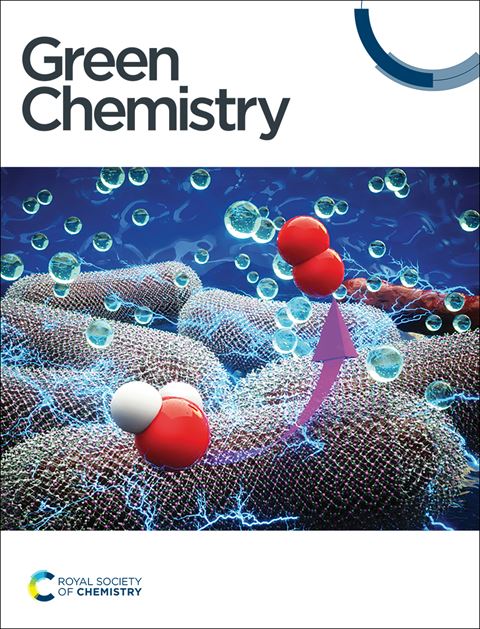Green chemistry startups: some lessons learned
IF 9.3
1区 化学
Q1 CHEMISTRY, MULTIDISCIPLINARY
引用次数: 0
Abstract
There has been an explosive growth in environmentally driven startups in recent years. Much of this has included university spin-outs aiming to translate academic research into commercial practice. This activity dovetails with the principle aim of green chemistry research – improving the sustainability of the chemical and materials industries. However, academics are not always fully aware of the activities, needs, timelines and considerations of startup companies and how these differ from academic research. This can lead to a misunderstanding of whether, when or how to start a cleantech company and what to do once one is formed. Through a careful consideration of the founders, their motivations, the industry, scale and market forces behind an innovation, a business roadmap can be drawn which will help determine whether the technology is appropriate for deployment in the commercial sector. Considerations such as scale-up, cost, capital fundraising needs and teambuilding must all come together as part of the translation journey. Based on lessons learned through my group forming 9 cleantech startups since 2016, I have tried to blend facts, perspective and anecdotes to demonstrate how the green chemistry translation can help us achieve the ultimate goals of the field: sustainable chemical production and a fully decarbonized chemical industry.

绿色化学初创公司:一些经验教训
近年来,环境驱动型创业公司呈爆炸式增长。其中包括旨在将学术研究转化为商业实践的大学分拆。这项活动与绿色化学研究的主要目标相吻合,即提高化学和材料工业的可持续性。然而,学术界并不总是完全了解创业公司的活动、需求、时间表和考虑因素,以及这些与学术研究有何不同。这可能会导致对是否、何时、如何创办一家清洁技术公司以及一旦成立该做什么的误解。通过仔细考虑创始人、他们的动机、创新背后的行业、规模和市场力量,可以绘制商业路线图,这将有助于确定该技术是否适合在商业领域部署。在翻译过程中,必须综合考虑规模扩大、成本、资金筹集需求和团队建设等问题。自2016年以来,我的团队成立了9家清洁技术初创公司,根据这些经验教训,我试图将事实、观点和轶事结合起来,展示绿色化学翻译如何帮助我们实现该领域的最终目标:可持续的化学生产和完全脱碳的化学工业。
本文章由计算机程序翻译,如有差异,请以英文原文为准。
求助全文
约1分钟内获得全文
求助全文
来源期刊

Green Chemistry
化学-化学综合
CiteScore
16.10
自引率
7.10%
发文量
677
审稿时长
1.4 months
期刊介绍:
Green Chemistry is a journal that provides a unique forum for the publication of innovative research on the development of alternative green and sustainable technologies. The scope of Green Chemistry is based on the definition proposed by Anastas and Warner (Green Chemistry: Theory and Practice, P T Anastas and J C Warner, Oxford University Press, Oxford, 1998), which defines green chemistry as the utilisation of a set of principles that reduces or eliminates the use or generation of hazardous substances in the design, manufacture and application of chemical products. Green Chemistry aims to reduce the environmental impact of the chemical enterprise by developing a technology base that is inherently non-toxic to living things and the environment. The journal welcomes submissions on all aspects of research relating to this endeavor and publishes original and significant cutting-edge research that is likely to be of wide general appeal. For a work to be published, it must present a significant advance in green chemistry, including a comparison with existing methods and a demonstration of advantages over those methods.
 求助内容:
求助内容: 应助结果提醒方式:
应助结果提醒方式:


